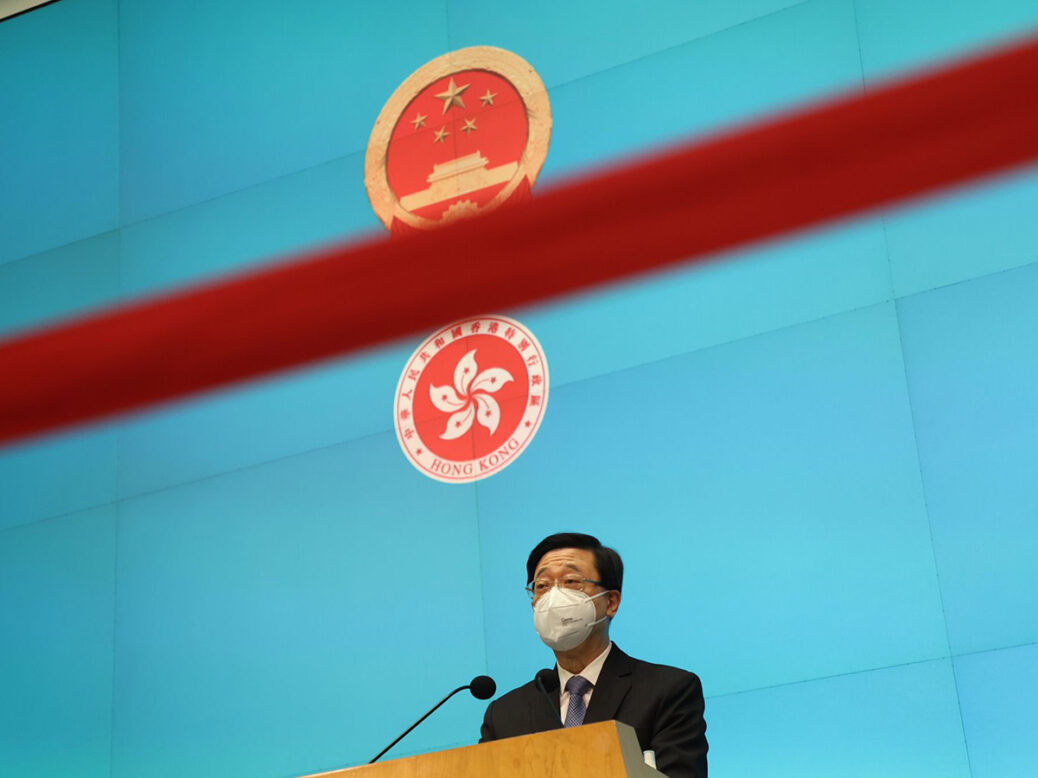
When Hong Kong was handed back to China from British rule in 1997, its citizens were promised that their individual rights and freedoms would be protected for the next 50 years. Under what was known as the “one country, two systems” framework, they were assured that the city’s “capitalist system and way of life” would be enshrined in law, and that they would enjoy a “high degree of autonomy” until 2047. They didn’t even make it halfway.
Hong Kong’s once-vibrant civil society has been steadily crushed as the central government in Beijing has increased its control in recent years. Pro-democracy protests in 2019 were met by a violent police crackdown that included the use of live ammunition. The following year a new national security law gave the authorities wide-ranging powers to stifle dissent and lock up the city’s last remaining opposition activists. The law has been used to target well known figures such as the young democracy campaigner Joshua Wong and the media tycoon Jimmy Lai, who are both now in prison. Any remaining hopes that this repressive campaign might prove temporary and that there could yet be a brighter future ahead have been snuffed out with the selection of the former security chief John Lee as the territory’s leader.
Lee is a former police officer who rose through the ranks to become Hong Kong’s secretary for security. He oversaw the crackdown on protesters in 2019, for which he has since been sanctioned by the United States. He was “elected” as chief executive (as the leader of Hong Kong is officially known) by a committee stacked with pro-Beijing loyalists on 8 May. Unlike previous chief executives, who have all had a background in either the civil service or the business community, Lee is widely viewed as having been handpicked by the Chinese Communist Party (CCP) for his security credentials and willingness to act as Beijing’s enforcer.
“They have got somebody who has done their bidding in the past, and who has proven that he will do whatever they tell him to do,” said Michael Davis, a law professor who taught at the University of Hong Kong until 2016 and the author of Making Hong Kong China. “He was in charge throughout 2019 in terms of security and he has come up from the police department. From their perspective, he is going to maintain order in Hong Kong, and from the critics’ perspective, he is going to turn it into a police state.”
[See also: Welcoming Hong Kongers will help reset the UK’s approach to immigration]
Hong Kong’s previous leaders have been appointed with at least a simulacrum of democratic participation, competing with rival, albeit carefully selected candidates for the office. This time the authorities dispensed with even the slightest pretence that the population had any say. Lee was the only candidate, winning all but unanimous support with 99 percent of the committee’s votes to replace the outgoing, and equally unpopular, chief executive Carrie Lam, who is also now on the US sanctions list for her role in undermining Hong Kong’s autonomy.
On 11 May, three days after Lee’s selection was announced, Hong Kong police made another round of arrests under the national security law, including Joseph Zen, 90, a Catholic cardinal, former bishop of Hong Kong and well known democracy activist. He was detained along with three others, including the singer and actor Denise Ho, on suspicion of “collusion with foreign forces” (a common accusation that is made against opposition activists) in connection with a now-disbanded charity that was set up to provide legal and financial support to protesters caught up in the 2019 crackdown. Zen has since been released on bail, but all four of those arrested have been ordered to surrender their passports to prevent them from leaving the territory.
Hong Kong was previously viewed as one of the world’s most important business hubs, and was said to account for as much as 18 per cent of China’s GDP when it was first transferred back to Beijing’s control. But the relentless erosion of the city’s freedoms, combined with the strict pandemic controls that have been in place since 2020, has prompted a steady stream of departures from among the international business community. In a survey by the American Chamber of Commerce in Hong Kong in May 2021 42 per cent of respondents said they had plans to move away from the territory or were considering leaving. Most cited the national security law as their primary concern.
[See also: Nathan Law: From Poland to the UK, “freedom is under threat”]
Davis said that it was clear from Beijing’s actions and Lee’s appointment that the central government envisions a future for Hong Kong in line with other mainland Chinese cities, abandoning the promises Beijing made to preserve its status in 1997 and destroying the last vestiges of its former identity. “I think the danger is that it could actually be worse for Hong Kong than other cities,” he said, “because the level of central government distrust is so much higher than it is for places like Shanghai. Beijing sees Hong Kong as having a disloyal population, and so the tactics to tame that population could be more aggressive than elsewhere. They intend to bring what was one of the most open cities in the world under authoritarian control.”
Lee will take office on 1 July, the 25th anniversary of Hong Kong’s handover. There will be fireworks and an elaborate ceremony for CCP officials and the city’s new dignitaries, but those celebrations will ring hollow for those who believed the promises that their democratic freedoms would be protected. Twenty-five years before those rights were due to expire, the territory’s remaining pro-democracy campaigners now face the awful choice of continuing their opposition, either in exile or from behind bars, or keeping silent and accepting that Hong Kong’s authoritarian future is already here.
[See also: How Peng Shuai exposed the limits of China’s power]






